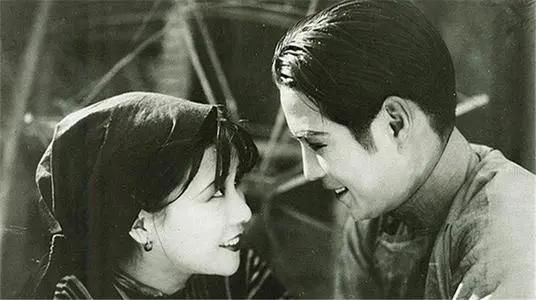The Historical Roots and Cultural Core of Chinese Film School
原标题:The Historical Roots and Cultural Core of Chinese Film School
Journal of Chinese Film Studies Volume 1, Issue 1 《中国电影研究》第一卷第一期 The Historical Roots and Cultural Core of Chinese Film School To Cite This ArticleWang, Haizhou. 2021. "The Historical Roots and Cultural Core of the Chinese Film School". Journal of Chinese Film Studies 1 (1): 101-113.
1 Abstract and KeywordsAbstract: Chinese cinema has its own unique features, created through nationally distinct methods. Once revealed, these methods make possible the construction of a unique “Chinese film school.” This article explores the historical development of Chinese film arts in order to uncover general trends along its winding path. While being open to the world, the Chinese film school ultimately returns to traditions in Chinese art as a method to construct a unique theory of Chinese film. This methodology has enabled Chinese films to reflect wider developments in world cinema, while also maintaining distinctive Chinese cultural characteristics.
Keywords: Chinese film history; Chinese arts tradition; Chinese film school
摘要:中国电影具有自己的特点,有蕴含着民族特色的创作方法,自然存在着发现、建构“中国电影学派”的可能性。应该梳理中国电影艺术探索之路,在断裂的历史链条中寻找共性,面向世界的同时,回归中国艺术传统,建构中国电影自己的理论表述体系,让中国电影作品,既能融入国际主流趋势,又带有浓郁的中国文化气质。
关键词:中国电影历史;中国艺术传统;中国电影学派
2 A Glimpse of This Article
(The Peach Girl by Bu Wancang in 1931)
Looking back at the more-than-a-century-long journey of Chinese films reveals a continuous exploration of artistic techniques that, at the same time, has been frequently interrupted. This is distinct from the history of American film, which has seen a relatively constant accumulation of artistic explorations and experience.
回望中国电影一百一十多年的历程,有别于美国相对连续、不断累积艺术探索经验的电影历史,中国电影则呈现一个不断探索、而探索进程又不断被打断的一个相对断裂的历史线索。
When the Chinese film industry began taking shape in the 1920s, Chinese pioneers consciously attempted to create Chinese films.中国电影在产业初具雏形的二十世纪二十年代,拓荒先贤们对建构“中国电影”的认识并不低……
By the beginning of the 1930s, an array of films finally explored how to properly express Chinese styles in fresh modes. These included The Peach Story (Taohua qixue ji, dir. Bu Wancang, 1931), which achieved a balance between traditional ethics and modern values, in the process charting an initial path for exploring national films.到了1930年代初期,《桃花泣血记》等一批作品终于探索出了中国风格、清新气质的恰当表达,也实现了传统伦理与现代价值的平衡呈现,民族电影的发现 之路初现端倪。
During the tumult of wartime, Chinese film producers strived to overcome the scarcity of film production materials to make films that would serve the nation as weapons in the War of Resistance against Japan.抗战时期,兵荒马乱,电影生产物质匮乏,但是电影人仍然尽一切可能以电影为武器服务于全民抗战。
After the Communist Revolution and the founding of the People’s Republic of China, there were drastic ideological changes and Chinese films transitioned from being “citizen’s films” to “people’s films.”解放战争结束、新生的人民共和国建立之后,随着意识形态的乾坤扭转,中国电影从“市民电影”转向“人民电影”……
After the Cultural Revolution, Chinese films entered a new era before the oft-interrupted historical project of reconstructing the artistic tradition could be restarted.当走出“十年浩劫”后,中国电影还没有来得及对历史断裂进行修复、对艺术传统进行重建,就进入了改革开放的大时代……
Compared to when Lin Niantong presented his ideas, today there are more reasons, as well as more opportunities, for Chinese filmmakers and researchers to confidently insist on the production and theory of Chinese film... Ultimately, Chinese filmmakers should shoulder the burdens of our times and create pioneering works that hold aloft the banner of the “Chinese film school.”
相比于林年同先生思考的年代,我们今天更有理由、更有条件坚持中国电影的创作自信、理论自信…… 所以,承载着时代重托的中国电影人,需要做一些开拓性的工作,举起“中国电影学派”的旗帜,把中国电影研究做的更有意义、更符合中国国情,给中国电影研究奠定一个新的基础。
点击下方链接直达文章“The Historical Roots and Cultural Core of Chinese Film School”
https://www.degruyter.com/document/doi/10.1515/jcfs-2021-2010/html
本文为“开放获取”,让知识传播得更远。
3 About the Author王海洲 | Haizhou Wang
Beijing Film Academy
Haizhou Wang is a professor of Film Studies at Beijing Film Academy. He serves as the Dean of the Postgraduate Department and the Head of the Library of Beijing Film Academy. He is the chair researcher in the art direction of the Advanced Innovation Center for Future Visual Entertainment of Beijing Film Academy and the chair researcher of the China National Social Science Major Project“The Inheritance and Development of Chinese Artistic Traditions in Contemporary Chinese Films.” His scholarly research focuses on the cinema of Chinese Mainland, Hong Kong, Taiwan and their relations. His publications include Filmic Images and Culture: A Study of Hong Kong and Taiwan Cinema; Chinese Cinema: Concept and Track; City, History and Identity: A Study of Hong Kong Cinema; Imagined China: Research on Chinese Film Culture of the 1980s; and 110 Years of Chinese Films (1905-2015). Wang Haizhou has won numerous research awards in film studies in China.
王海洲,电影学博⼠,北京电影学院教授,博⼠⽣导师。现任北京电影学院研究生院院长、图书馆馆长,未来影像高精尖创新中心艺术方向首席研究员、国家社科基金艺术学重大项目首席专家。主要学术专长在中国电影研究,对⼤陆、⾹港、台湾两岸三地的电影有系统的研究,有《镜像与⽂化——港台电影究》、《中国电影:观念与迹》、《城市 历史 ⾝份:⾹港电影研究》、《想象中国:20世纪80年代中国电影⽂化研究》、《中国电影110年(1905—2015》等专著。
4 About the Translator金海娜 | Haina Jin
Communication University of China
Haina Jin is a professor of translation, film, and communication studies at the Communication University of China. Her research interests include film translation, translation history, and film history.
金海娜,中国传媒大学教授、博士生导师,国家社科基金重大项目“中国电影翻译通史”首席专家,研究专长为电影翻译、电影史、翻译史、影视跨文化传播。
《中国电影研究》Journal of Chinese Film Studies立足中国,面向国际,旨在搭建一流国际学术平台,发表国内外高水平的中国电影研究成果,加强不同文化背景的研究者之间的对话和沟通,促进国内外电影研究界开展交流与合作,推动中国电影研究的全球发展。欢迎广大专家、同仁惠赐稿件!
期刊主页
https://www.degruyter.com/journal/key/JCFS/htm
投稿网址
https://mc.manuscriptcentral.com/jcfs
编辑部
jcfs@degruyter.com
编辑 | 张若婷
责任编辑:
相关知识
The Historical Roots and Cultural Core of Chinese Film School
The Kyiv campus in Ukraine is full of Chinese New Year
【英语】CATTI备考重点词汇(212)
精品鉴赏-站洋币
2020高考英语60天冲刺:传统文化英语作文大汇总
【精品推荐】双旗币贰百文一组
中华民国三年中元圆币
【精品推荐】双旗币贰佰文
《No Roots》克里斯汀斯图尔特 你喜欢的样子她都有!
国枰拍卖精品推荐——洪宪纪元飞龙币
网址: The Historical Roots and Cultural Core of Chinese Film School http://m.shhpp.com/newsview105037.html